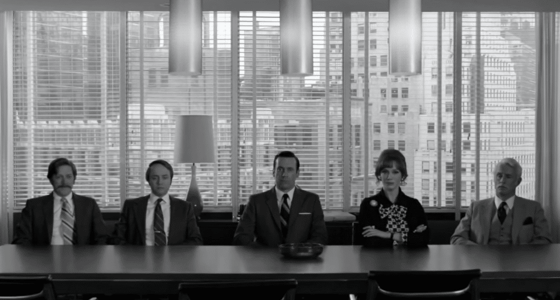


How online advertising can inadvertently damage your brand




The advertising business doesn’t have the best reputation. Mad Men stirred up a lot of strong opinions on an industry historically known for spending lots of money on creating brash, attention-seeking content that can sometimes land brands in hot water.
Now we’re in the 21st century, online advertising has changed the nature of the industry massively, but there still seems to be some bad blood. In this blog, we consider two key reasons people don’t like ads, and how online advertising can actually help inbound efforts.
The state of inbound marketing in 2016
HubSpot’s eighth annual State of Inbound report has just been released. This research brings together responses from more than 4,500 individuals who are involved in marketing in some shape or form, located all around the world.
So how can we sum up its findings? “The world is becoming more inbound,” explains HubSpot CEO Brian Halligan. “It’s growing more authentic, less interruptive.” Not only are marketers turning to the light and adopting inbound strategies, various other sectors are taking notice too.
By matching the way you market and sell to the way people want to shop and buy, you can naturally attract relevant leads and turn them into happy customers. That’s essentially the whole concept of inbound marketing. Offer people products, services or information in the matter in which they wish to receive it, and they will naturally come – inbound – to you.
Here at Six & Flow, we aim to keep hold of this philosophy and apply it to online advertising. However, this is a bit of a challenge considering the not-so-pearly white reputation of ads.
Is online advertising overrated?
There is one finding that has consistent throughout all the years of HubSpot’s State of Inbound reports. Outbound marketing (paid advertising) is considered the most overrated marketing tactic, regardless of what kind of marketer you are, where you’re from, or who you work for. Outbound marketing is always named and shamed as the most overhyped thing going.
Over 30% of marketers (both inbound and outbound) agree that paid print advertising is the most overrated marketing tactic. When it came to paid online advertising, this dropped considerably to 11% of outbound marketers and 15% of inbound marketers. This is still a reasonable amount of opposition, though.
In comparison, only 6% of outbound marketers and 5% of inbound marketers agreed that blogging is the most overrated marketing tactic. Similarly, just 6% of inbound marketers and 5% of outbound marketers consider SEO to be the most overrated strategy out there.
So what’s everyone’s beef with advertising?
Problem 1: Outbound ads are annoying
According to HubSpot, 84% of millennials say they don’t trust traditional advertising. Old school, impersonal broadcast messages aren’t going to fly with them. Interruptive marketing tactics such as pop-ups, cold calling and direct mail campaigns push products onto people who simply aren’t interested.
As a result, people may simply reject your ads, no matter how flashy they are. Even worse, these people may start to negatively associate your brand with said flashy adverts. What a nightmare!
Problem 2: Marketers are suffering money worries
When HubSpot asked respondents about their company’s top marketing priorities over the next 12 months, over 40% of both inbound and outbound marketers answered that it was proving their marketing ROI.
Without any proof of the glorious outcomes that their hard work achieves, marketing departments will struggle to gain credibility, respect and perhaps most importantly, budget.
Now obviously, paid advertising costs money (the clue’s in the name, really!) Advertising budgets can vary enormously, but one value shared by many companies is that this outgoing is an expense they can ill afford.
This is especially in the case of print advertising, where the ROI is almost impossible to empirically prove.
Meanwhile, we know that online advertising benefits brands by generating leads. However, there is the concern that once daily spend is capped out, your campaign will stop firing. In other words - no money, no leads.
How online advertising can actually help
So to conclude, ads can damage your brand by sucking all the budget out of the marketing department and blowing it on flashy ideas that backfire with your unwilling audience. That’s what you expected to hear, right?
However, this isn’t totally accurate. If ads are carefully designed and properly targeted, they can play a very important role in generating relevant leads. As Marketing Land recently argued, non-intrusive native ads can continue and even improve a consumers’ experience.
Even more important, we think, is the potential for online advertising to help perfect inbound marketing campaigns. That’s right - paid advertising can work in harmony with inbound.
Now, while we would never argue against the benefits of inbound marketing, we will point out that consistent content production is a long-term financial commitment. HubSpot research shows that the average inbound marketing campaign starts to generate significant numbers of leads roughly six months in (when we say average here, you’re looking at spending 60 hours a month on all activities).
Whether you outsource work or keep it in-house, this is resource-heavy and won’t come cheap. What if you’ve chosen the wrong keywords for your content campaign, or the target persona isn’t quite right? That’s six months’ budget straight down the drain!
However – one of the benefits of online advertising is that you can test out all these campaign details and see the results almost immediately. You can adjust and improve your targeting and messaging within days, rather than months.
It takes 20 years to build a reputation and 5 minutes to ruin it. Make sure your social media management is helping not damaging your brand by reading our post "How to boost your brand reputation with social media management"








